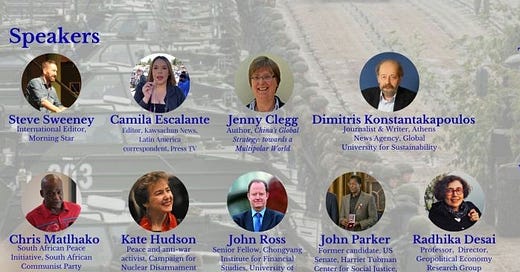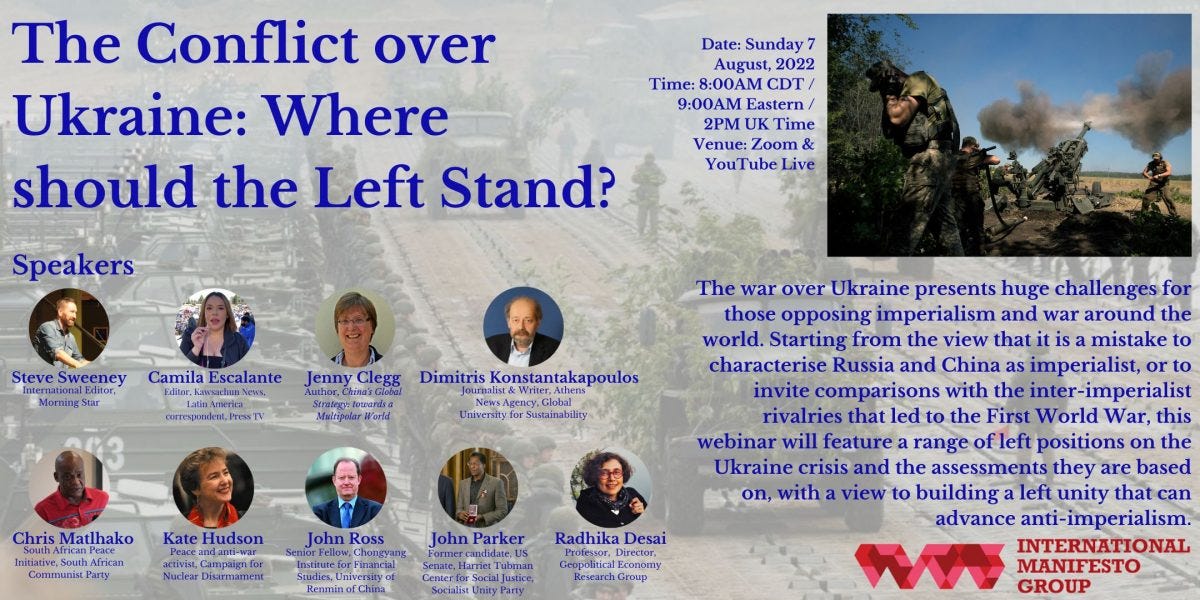The International Manifesto Group sponsored a Webinar on August 7, 2022, on “The Conflict Over Ukraine: Where Should the Left Stand?” The moderator, Radhika Desai, explained that the Webinar has been organized in response to the absence of a coherent Left position on the Russian special military operation in Ukraine, including divisions concerning the nature of imperialism and with respect to the identification of imperialist actors in the world scene, with some leftists participating in the demonization of Russia and China. She noted that the incoherence of the Left has historic roots, in that following the end of the Cold War, many of the Left adopted the rhetoric of human rights, thus becoming defenders of imperialist interventions in the world. Desai is a Professor at the Department of Political Studies, and Director, Geopolitical Economy Research Group, University of Manitoba, Winnipeg, Canada; and she is the convener of the International Manifesto Group.
John Ross is S…



